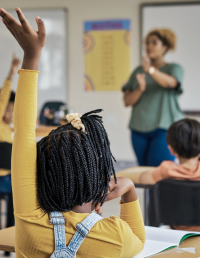Wiyot and Bear River Tribes Call for “True Partnership” To Protect the Civil Rights of Loleta Students
FOR IMMEDIATE RELEASE
December 12, 2017
Media Contact:
Lewis Cohen - NCYL: (510) 835-8098
[email protected] - ACLU of Northern California: (415) 621-2493
Denise Bareilles – CA Indian Legal Services: (707)443-8397
Michelle Vassal - Wiyot Tribe: (707) 733-5055
Dakota McGinnis - Bear River Band of the Rohnerville Rancheria: (707) 733-1900
Loleta, CA – Tribal leaders are hailing the news that Loleta Union Elementary School District has entered into a Voluntary Resolution Agreement with U.S. Department of Education. The Loleta School Board is scheduled to discuss the agreement at its December 13th board meeting, which will be held at 5pm in Room 8 at the Loleta Elementary School.
Leaders from the Wiyot Tribe and the Bear River Band of the Rohnerville Rancheria are now requesting that the district meaningfully include tribal leaders and community members as the district works to fulfill the terms of the agreement. “We appreciate that the district’s current leadership has agreed to address longstanding concerns of our community,” said Ted Hernandez, Tribal Chair of the Wiyot Tribe. “Entering into this agreement is an acknowledgement that the district can and must do better for our students.”
The agreement follows an investigation by the Department’s Office for Civil Rights (OCR) into complaints that the Loleta Union Elementary School District was discriminating against Native students on the basis of race. The Wiyot Tribe filed the complaint in December of 2013 and was represented by the National Center for Youth Law, the ACLU of Northern California, and California Indian Legal Services. The OCR investigation found substantial evidence that the district had created a hostile environment for Native American students, disciplined Native students more harshly than other students, and failed to provide legally mandated services for students with disabilities. The complaint also charged the district with failing to pursue much-needed funding opportunities targeted to districts with significant Native populations.
The agreement requires the district to hire experts to address these problems and to establish a community oversight committee with the participation of the tribes along with other stakeholders. Council member Madison Flynn says the Wiyot Tribe is ready to participate but, given the district’s troubling history, good faith measures are necessary. “The district needs to hire a mutually agreeable expert that has the confidence of both the school employees and the community,” said Flynn. “If we are going to commit our time and resources to making this very ambitious plan work, we need to feel our engagement is meaningful and welcomed and that we will be treated as full partners.”
Specifically, tribal representatives are requesting that an outside expert facilitator manage the community oversight committee to ensure all voices are heard and valued. Given the multiple overlapping deadlines for implementing key pieces of the agreement within the next year, the tribal representatives want to ensure participation from the tribal councils, social service directors and parents of children at the school from both the Wiyot Tribe and the Bear River Band of the Rohnerville Rancheria, along with members of the school board, district officials, and representatives of the county Office of Education. “We all need to pull together to accomplish the tasks set forth in the agreement,” said Vice-Chairperson Dakota McGinnis of the Bear River Band of the Rohnerville Rancheria. “Our children will need resources from Loleta and beyond to thrive and succeed.”
Attorney Denise H. Bareilles of California Indian Legal Services says the Stakeholder Equity Committee should form workgroups on: School Discipline, Evaluation, Placement and Service Implementation for Students with Disabilities, Harassment Based on Race or National Origin, and Review of Policies Related to Participation in Graduation Exercises and Extracurricular Activities. “The OCR investigation identified deficiencies in each of these areas. Any plan to fix these problems will require concentrated and focused attention,” said Bareilles.
The tribal representatives recognize that this work will require resources. Noting that the district has a history of failing to pursue much-needed funding opportunities, the tribes are continuing to call upon the district to take advantage of the tribes’ familiarity and expertise in funding opportunities targeted at Native American students. “We stand ready to help.” Said McGinnis. “We hope the district is ready to take us up on this offer.”
On Thursday, December 14th, the Wiyot Tribe, Bear River Band of Rohnerville Rancheria, the American Civil Liberties Union (ACLU) and California Indian Legal Services (CILS) will host a community meeting regarding the agreement between the Loleta Union Elementary School District and the U.S. Department of Education. The meeting will take place from 6 – 7 PM at the Tish Non Community Center, Bear River Band of the Rohnerville Rancheria, and is intended for parents with children attending Loleta School, interested tribal members, and tribal staff. Those who attend will learn more about the agreement, how to participate in a stakeholder committee to monitor the district’s compliance with the agreement, and how to report any ongoing issues to OCR.
###
The National Center for Youth Law (NCYL) is a national non-profit organization that has been working for over four decades to improve the lives of at-risk children. Employing a range of strategies, NCYL works to ensure that low-income children have the resources, support, and opportunities they need for healthy and productive lives.
The ACLU of Northern California is an enduring guardian of justice, fairness, equality, and freedom, working to protect and advance civil liberties for all Californians.
California Indian Legal Services represents low-income Native Americans, tribes and tribal organizations on matters of federal Indian law. We also provide tribal community education and trainings on a wide verity of subjects and topics that involve federal and state legislation, regulations, policies and case law that impact individual Native Americans, tribes and tribal communities. Our community education and trainings also extends to the non-Indian community, state and federal agencies, local and state law enforcement, the state judiciary, and other entities.





